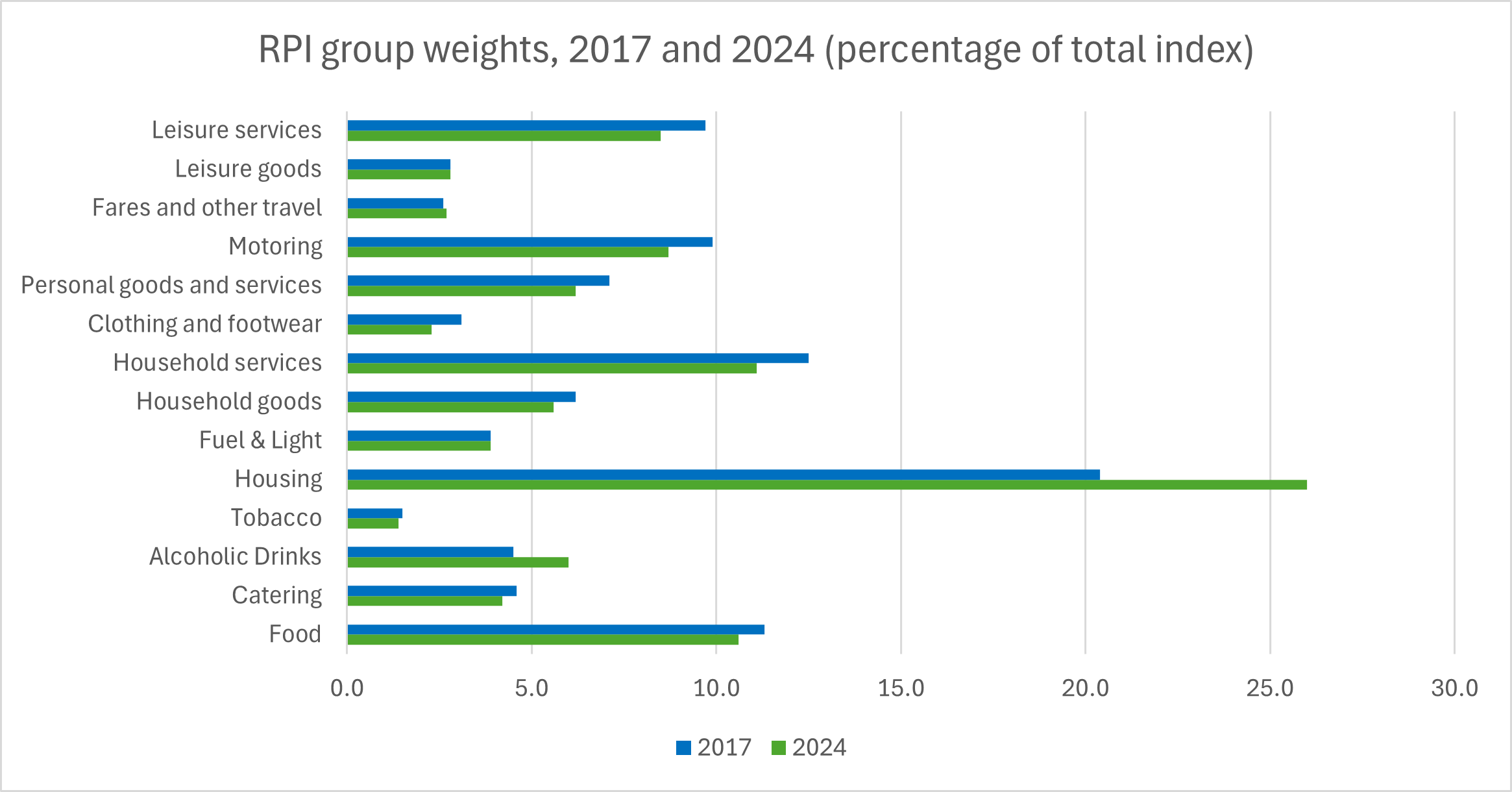By Chris Collier at BWCI
chris.collier@bwcigroup.com
“lifestyles and behaviours
gradually change over time”
The composition of the “basket of goods” used to quantify inflation provides an interesting, but perhaps not immediately obvious, insight into how lifestyles and behaviours gradually change over time. The December 2024 Jersey RPI figure is the first to be based on the latest “basket” and we look at what has changed and why.
What is RPI and the basket?
The Retail Prices Index (RPI) measures changes in the price of a representative “shopping basket” of goods and services purchased by households.
The contents of the basket is fixed for several years at a time. This ensures that changes in the index only represent changes in price. However, over time, typical spending patterns change due to technological developments and lifestyle changes. Therefore the basket’s contents and weightings of the goods and services need to be updated from time to time, to ensure that the RPI reflects changes in the prices of what a “typical” household is buying.
Generally, Jersey’s basket is reviewed every 5 years or so, using the results of the Jersey Living Costs and Household Income Survey (LCHIS).
Determining the contents of the basket
The basket does not contain everything bought by households, as it would not be feasible to collect and process that much data. Instead, it contains a sample of “representative items”. The Jersey RPI is calculated from over 2,500 prices for around 500 representative items.
Changes to the 2024 weightings
Weightings are applied to each item; these reflect the proportion of each pound that the average household spends on the item. This ensures that items that make up a greater proportion of a household’s spending have a greater impact on the index. The 2024 weights were updated using household expenditure from the 2021/2022 LCHIS.
The chart compares the group weightings in 2017 and 2024. The largest change has been the increase in the weight of the housing group from 20.4% to 26.0%. This is due to mortgage interest payments increasing by more than overall RPI between 2017 and 2024. In contrast, clothing has seen below average price increases over the period which has contributed to a reduction in the weighting from 3.1% to 2.3%.

Changes to the 2024 basket
Since the previous basket update in 2017, around 40 items have been added to the 2024 basket, and a similar number have been removed. Some notable examples include:
Food – Convenience items have been added such as pre-cooked rice, preprepared mashed potatoes and pre-cut vegetables to reflect increased expenditure and improve coverage in this area. Meal box subscriptions have also been added to represent a new area of spending not previously represented.
Clothing and footwear – Women’s formal skirts, men’s suits and men’s ties have been removed and women’s sports leggings added to reflect changes in fashion trends.
Fares and other travel – E-bikes have been added to reflect their increasing popularity.
Leisure Goods – Computer game downloads and subscriptions and online magazine and newspaper subscriptions have been added to reflect the growing popularity of digital media services, whilst CDs and DVDs (and their players) have been removed as music and film purchases are more adequately represented by downloads and streaming services. Hi-fi systems, small music players, digital cameras, camcorders and SD memory cards have been removed to reflect changes in technology and the increased popularity of using smartphones for these purposes.
A direct result of the pandemic is that remote working is now widespread and “office wear” for those who do still have to venture into the office is much more casual; this seems likely to have resulted in formal office wear dropping out of the basket.
It is also interesting to see that electric bikes are now included, for the first time, due to their increasing popularity as a more sustainable and convenient mode of transport.

